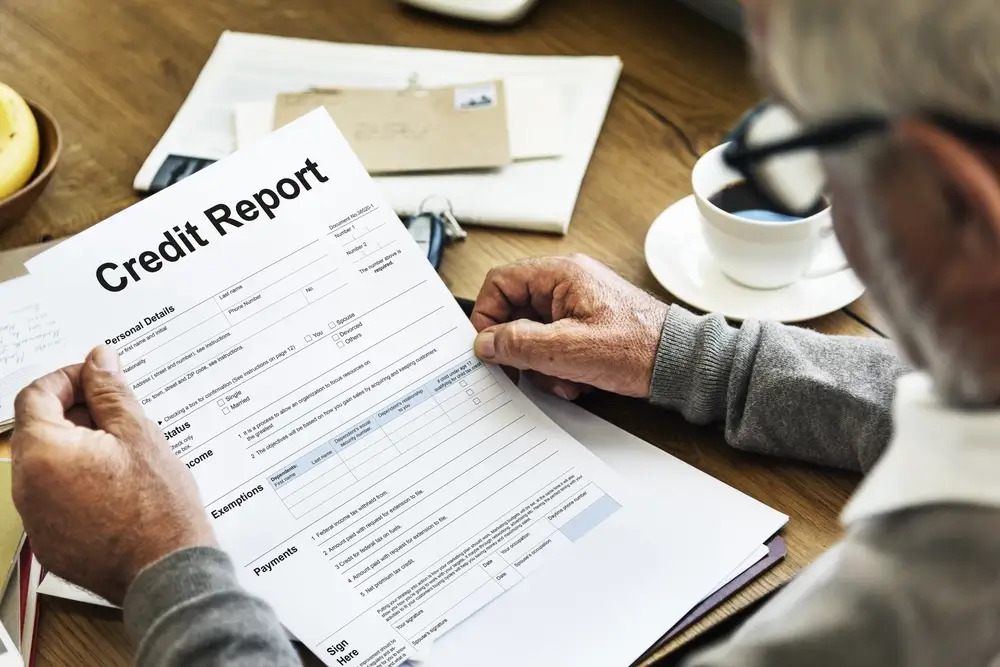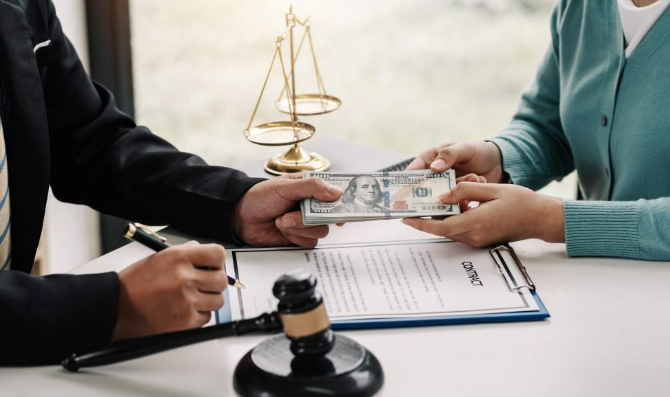
How long does bankruptcy stay on your credit report? Filing for bankruptcy can be a tough call to make. While it can offer relief from financial struggles, it also has the potential to harm one’s credit. Depending on the type of bankruptcy filed, the effects can linger for a considerable length of time.
Chapter 7 bankruptcy can remain on a credit report for up to 10 years, whereas Chapter 13 bankruptcy can last up to 7 years. It’s worth noting that the negative impact on credit scores can gradually diminish over time, but still have a lasting effect as long as they remain part of an individual’s credit reports.
Key Takeaways
- The impact of bankruptcy on an individual’s credit can last years.
- A Chapter 7 bankruptcy can remain on your credit report for up to 10 years after the date of filing, while a Chapter 13 will generally stay for about 7 years.
- After bankruptcy, it is possible to rebuild your credit but will take some time.
What Is the Bankruptcy Status on Your Credit Report?
In credit reports, bankruptcy filings are usually found in the public records section. Credit Bureaus actively gather or receive public record information from courts in order to keep credit reports up-to-date.
What Does Bankruptcy Do to Your Credit Score?
A bankruptcy filing can have a negative impact on credit scores, although the extent of the impact may vary. Credit scores serve as an indicator for creditors to determine whether borrowers are likely to continue paying their debts as agreed. When you file for bankruptcy, some debts may not be repaid or may be repaid differently.
Creditors and other organizations can review credit reports, and they may consider bankruptcy when making decisions. People who have filed for bankruptcy may find it challenging to qualify for credit with favorable terms. Additionally, it could also impact their ability to secure employment, rent an apartment, or open a new utility account.
However, it’s possible to rebuild your credit even before the bankruptcy is removed from your credit reports.
Remove Bankruptcy from Your Credit Report
Removing a bankruptcy from your credit report quickly is not possible, except in cases where it was added by mistake. If the bankruptcy was added by mistake, you can dispute it with the credit bureaus. However, if it is a legitimate bankruptcy, it will remain on your credit report for 7 or 10 years, depending on the chapter you filed.
Even if you have been discharged from your debts and are no longer responsible for them, the bankruptcy will not be removed from your credit report. It will take between seven and ten years from the date of the bankruptcy filing for it to be removed from your credit report.
Late payments and discharged accounts can continue to impact your credit score as long as they remain on your credit report.
How to Rebuild Credit After Bankruptcy
Although bankruptcy can have a negative impact on credit scores, you can work to rebuild your credit as you wait for the bankruptcy’s effects to subside. Start with these few suggestions.
Check Your Credit Reports
Regularly checking and monitoring your credit reports is crucial to ensure their accuracy. Make sure to verify that all discharged debts have been reported as discharged and not current. If you find any errors, you may need to contact each credit bureau separately to dispute them.
Check your credit score periodically to see if there are any changes. Don’t be surprised if you don’t see an immediate increase in your credit scores. If you remain patient and have good credit habits in place, your score can gradually improve over time.
Take Good Credit Habits to Heart
Developing good credit habits over time can help improve your credit score and history. One such habit is paying your bills on time to avoid any late payments being reported to credit bureaus, which could negatively impact your credit score. Additionally, experts recommend using 30% or less of your total credit limit to maintain a low credit utilization ratio.
Request a Secured Credit Card
A secured credit card can be a good option for rebuilding credit after bankruptcy. By making timely payments and keeping a low balance, you can gradually improve your credit score over time. However, it’s important to compare different secured credit card options and choose one with low fees, reasonable interest rates, and reporting to all three major credit bureaus.
Consider starting with a small credit limit and using the card for regular purchases that you can pay off in full each month. This can help demonstrate responsible credit behavior and increase your chances of upgrading to an unsecured credit card in the future.
Get a Credit-Builder Loan
A credit builder loan is an alternative option for improving your credit. With this type of loan, the funds are placed in a secured savings account, and monthly payments are made towards the loan. The lender will usually report your payment history to credit bureaus, which can help improve your credit score. Once you’ve fully paid off the loan, the remaining balance will be returned to you. You can then use the funds as you see fit.
In a Nutshell: Bankruptcy and Credit Reports
While it is common for people to view bankruptcy as a last resort, it may be the best choice for those facing severe financial difficulties. It is important to keep in mind that filing for bankruptcy can have a significant impact on your credit, lasting up to 10 years and potentially damaging it. Regardless of your current financial situation, it is always a good idea to take steps to improve your credit score.
Debt can be overwhelming and affect all areas of your life. If you’re struggling with debt and considering bankruptcy, Tenina Law is here to provide you with the legal support and guidance you need.
Their experienced bankruptcy attorney understand the complexities of bankruptcy law and can help you navigate through the process from start to finish. They can help you decide whether bankruptcy is the right option for you and help you develop a plan to regain control of your finances.
Schedule a consultation with Tenina Law today to learn more about their bankruptcy law services and how they can help you get your financial life back on track.






